
A familiar topic in discussions of the future of the university is the apparently reduced role of the humanities in an increasingly vocationally oriented and technology-driven research and educational landscape. One driver of this STEMcentricity, as we might term it, is a perceived threat from the rising knowledge economies of Asia, including China, India and the ASEAN countries. (STEM here refers loosely to scientific areas of study such as Science, Technology, Engineering and Medicine).
I will offer my own perspective on this ‘crisis of the humanities’ developed from my involvement in higher education in China particularly since 2011, when I joined the University of Nottingham’s campus in Ningbo, China as Professor and Head of English and then Dean of Humanities and Social Sciences. I argue the obvious need to move beyond the old disciplines just as we need to move beyond the old national boundaries without at the same time giving up or attempting to ignore the essential values of global diversity of thought, language and cultures, which is what a humanities education at best teaches us. Neither East nor West alone is enough, neither STEM nor Humanities.
They all have their own strengths and weaknesses, but above all, a productive cross-fertilisation of these still too much separated areas can be the way to develop new modes and styles of thinking needed to face the unprecedented global and local problems of the 21st century in areas like the environment and sustainability, uses of new digital advances and Artificial Intelligence, migration and slavery, health and ageing and more besides. The ‘threat’ of an Asian century is a reality but needs to be perceived more constructively, just as China, for example, must for its own good come to terms with the fact that so long as it attempts top down control and direction for its people, so too will desired innovation and progress be limited.
Chinese universities in the troubled twentieth century were largely derived from western models. The imperative was seen as learning from the science and technology of the west. The model was utilitarian and humanities were seen as rather a luxury a developing country could not afford. For humanities activities themselves this raises immediate issues of the ideological orientation, appropriacy and relevance of a classic liberal arts education and models of research a hundred years on.
Chinese universities are rapidly climbing league tables on the basis of ever more impressive and independent STEM research, but at the same time arts and humanities ratings slip ever further behind in China and across a wider Asia. Employers and government globally have recognised the need for innovation and creativity which the single-minded focus on largely short-term STEM goals is not delivering. How in this climate of change and challenge can science and the humanities most productively interact and inform each other? A narrow-minded vocational approach to university education is failing.
Employers regularly tell researchers that the knowledge in the most vocational courses is out of date as soon as it is taught. What they value and want as almost every job advertised specifies, is not so much specific knowledge as the ability to communicate well, to work in teams, to analyse complex data and make decisions – in short a list of all a humanities education offers! Humanities scholars need to make sure the situation is more widely recognised.
One response in China has been the development of new Liberal Arts or ‘General Education’ programmes in some of the leading universities. The challenge is enormous. How does a knowledge of history, international relations, literature or fine arts help my child earn a living? The challenges in fact begin revealingly with the very name ‘liberal arts’ which proves more or less impossible even to translate into Chinese (hence the ‘general education’ label often used, which lack marketing pizazz to say the least.)
The whole orientation of liberal arts education as it has been known hitherto comes across in China as too individualist and self-indulgent. Where in the West the humanities and social sciences often see themselves as civic guardians and in critical opposition to the state and the powerful, in China these disciplines are explicitly informed of their role to support the state and further its projects and funded or supported accordingly. Arguably the distinctive inflections of a Confucian humanitarian approach need to be rediscovered. Good education is appropriate to its varying contexts; there is no one size fits all.
This is not to argue at all for a problematic western heritage to be pressed on to a grateful Asia in a new chapter of colonial dominance, now by ideology. Many of the world’s current pressing problems derive from or first arose from the west, whether it be the industrial revolution, capitalism and neo-liberalism or colonialism, imperialism and its consequences (including, for example, Chinese diaspora, which needs to be viewed, for all its pain, as an opportunity rather than a problem).
Why would anyone want to go down that road? At the same time, phenomenal economic growth in East Asia is now slowing down with significant demographic challenges of the ageing population also on the horizon. In that context Chinese leaders are rightly articulating the challenge to move beyond a plateau of development and the need for a sophisticated creative, innovative and knowledge economy as the way to achieve that. But there are political tensions. The party will not willingly relinquish control. Likewise, while casting envious looks toward Chinese economic growth figures, top down management and dominance of enormous state run industries are not appealing to neo-liberals in the west. Learning from each other is not easy but that is no good reason not to try.
This is all rather abstract, but some brief examples of where STEM and Humanities have successfully met and worked together can already be offered and are heard more almost day by day. Doctors in training in Europe and the USA now routinely attend seminars on story telling and listening to stories in the light of research showing they were not listening to their patients’ stories and so missing crucial symptoms and developments. Human communication and emotional intelligence are now seen to be a major fraction of a doctor’s training. Medical practitioners are increasingly recognising that quality of life is more important than extending lives pointlessly with drugs and technology.
It is a doctor’s job to make sure patients suffering from terminal cancer or irreversible neurological deterioration also come to terms with this fact. Since the US Enron scandal and the 2008 financial meltdown, Business Schools routinely offer required modules in ethics. In China itself, research institutes in Tianjin, Guangzhou and elsewhere are investigating the claims of traditional medicine (though too often still from a rather westernised view of the body and well-being, it seems).
To offer some further examples I have seen up close myself, at my own University of Nottingham UK and elsewhere, HCI human computer interaction is a key concern. This is a rapidly developing but clearly key area as computers whether as smart phones or through AI, mass surveillance and big data research, impinge ever more into our everyday ordinary lives. How best to use these amazing break-throughs? Technical expertise and stance are not enough. Human factors engineering is not a pure old-fashioned science, but incoroporates cognitive psychology and others.
At Nottingham’s Malaysia branch traditional plant based health care is being integrated into modern approaches to illness and wellbeing. A paper published in a science journal is old news within a year or two and of little interest since it is felt to have been superseded. A paper in humanities is not usually noticed for several years, and then will often look backwards to see what can still be usefully learned from history that has been forgotten in the rush to ever more new knowledge, techniques and materials.
Another factor that must be brought into this discussion of the value of the humanities is the small nation perspective where science has come to appreciate the value of diversity. Complex is good! Why, for example, doesn’t all the world speak a single language? Could it ever do so? Linguists studying these issues point to the value of diversity both as respecting distinct identities, histories and associated ways of life, but also as a scientific understanding of the range of the human, and what humans are capable of. Just as Kew Gardens preserves seeds and samples all known plants, linguists must record ever where we cannot guarantee the continued existence of foreign languages where, like insects or animal species, literally thousands are dying out every year globally, with no real understanding yet of what the real cost of that catastrophe will be.
Language planning and policy, as academic disciplines which have grown from such concerns have helped to ensure Welsh now has more speakers than at any time in history previously, and the (re-) invention of Hebrew into a prospering language in Israel and beyond. The EU rightly respects and as policy supports multilingualism if sometimes in a constrained way and with the English elephant in the room growing ever larger and pushier till now it seems. Once again, these issues are not straightforward.
Human societies need the humanities even when we don’t fully understand why and how, and these questions are themselves good examples of humanities research: what does it mean to be human is the most basic question. Perhaps this is a particularly pressing question at a time of rapid change and disruption which leaves so many confused, insecure, and behind. By way of example from my own research, I will refer in my presentation to a recent research project I led in Ningbo to investigate student and academic staff uses and preferences in the use of electronic resources and more traditional print-based forms.
Our conclusion, and that of the teachers, researchers and students we spoke with, is that both have their uses, both are needed, they can complement each other and we are better off in our learning for these technological advances but without any need or desirability to simplistically discard the older technology of the physical material boom. I argue overall that evolving models of STEM and Humanities both need each other to respond best to the large and pressing transdisciplinary challenges of the present century, and that neither China nor Europe or the U.S.A. can or should be the privileged centres of a newly pluricentral connected world.
Most fundamentally, the humanities exist to ask the hard questions about what humans want, where we are going and to raise alternatives and doubts with equal respect for the dead and the living, the past and present. The idea that everything is better than it ever was is intrinsically ridiculous, even though no-one would be likely to prefer in all aspects a rather short, nasty and brutish life in the middle ages. Self-examination, examination of values, and examination of the actions and motives of others, pushing at the edge of what can be known and is desired to be known, is of the essence of the humanities. To ask unanswerable questions repeatedly and insistently and to rest satisfied with no finding or product, aware of the imperfect answers of previous generations, is the critical role of the humanities, ‘critical’ in all senses.
A humanities education teaches humility and a sense of proportion, an appreciation of how little we know and understand. I began by referring to the threat facing the humanities. Even though I suggested this may have been exaggerated and mischaracterised, there is undoubtedly a threat to humanities research and teaching (not easily separated). We cannot assume that humanities will survive because they are needed, or thrive in a new China as it faces unprecedented challenges in the new Asian century.
Universities must believe in the value of humanities and comprehensive university research and education and must support them just as strongly if in different ways, to the ways they commit to STEM research already. The prompt and change must be for more interdisciplinary work, without which we are all doomed to follow further the flawed paths we already follow now. If metrics and the managers of the modern university cannot understand the need for humanities and their role in reinvigorated, blended, cutting edge research, they will attempt to close crucial departments and retire ‘unproductive’ staff. These metrics and managers must be resisted. Cultures do not make themselves. People make cultures. A humanities education gives us that insight and the best and most original scientists are fully aware of this fact.
Geoff Hall is the Dean of Arts & Education at the University of Nottingham Ningbo China.
For more information on the internatioal forum World After University, please visit this website.







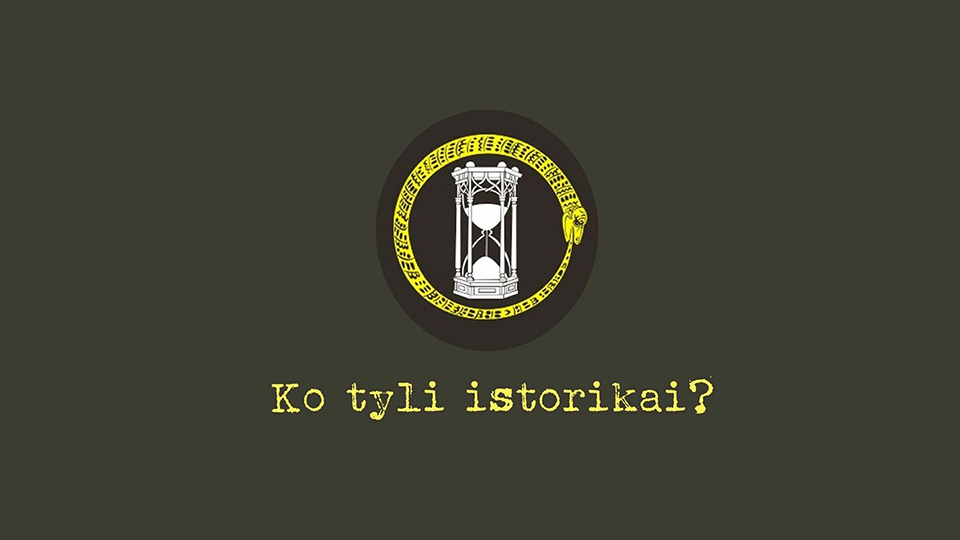
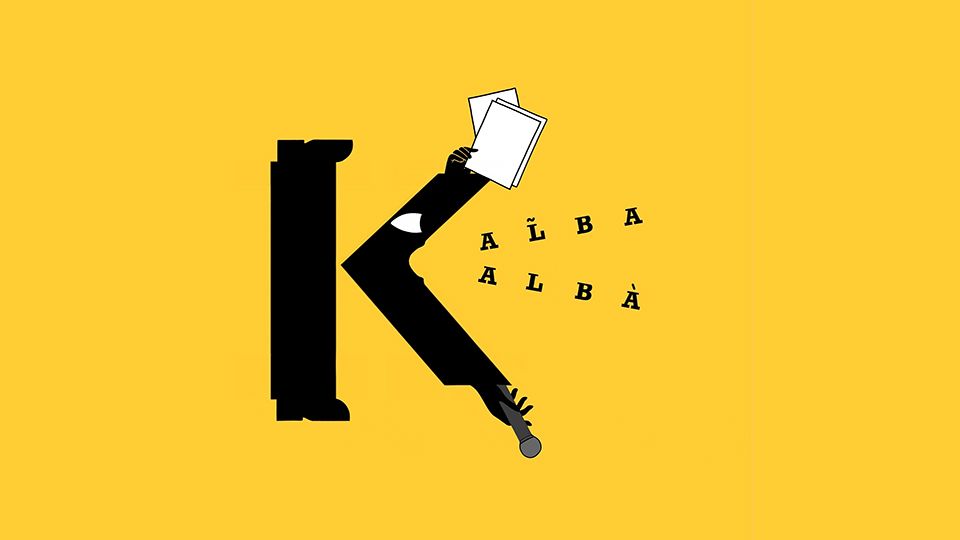



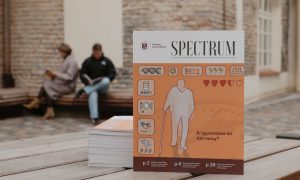
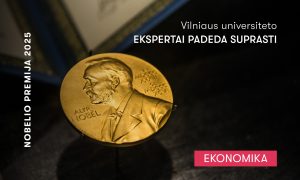
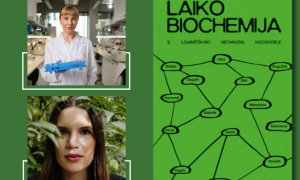
Komentarų nėra. Būk pirmas!